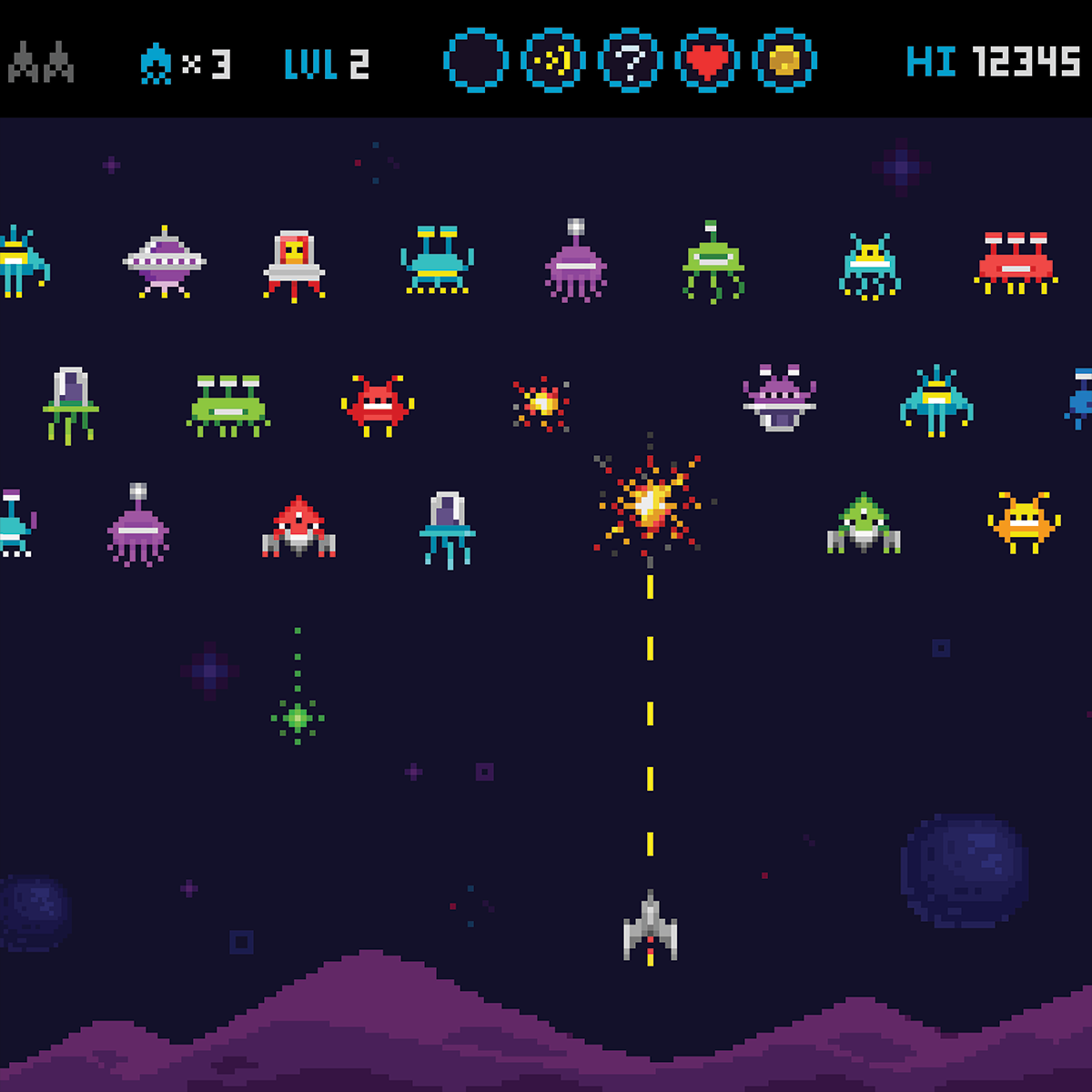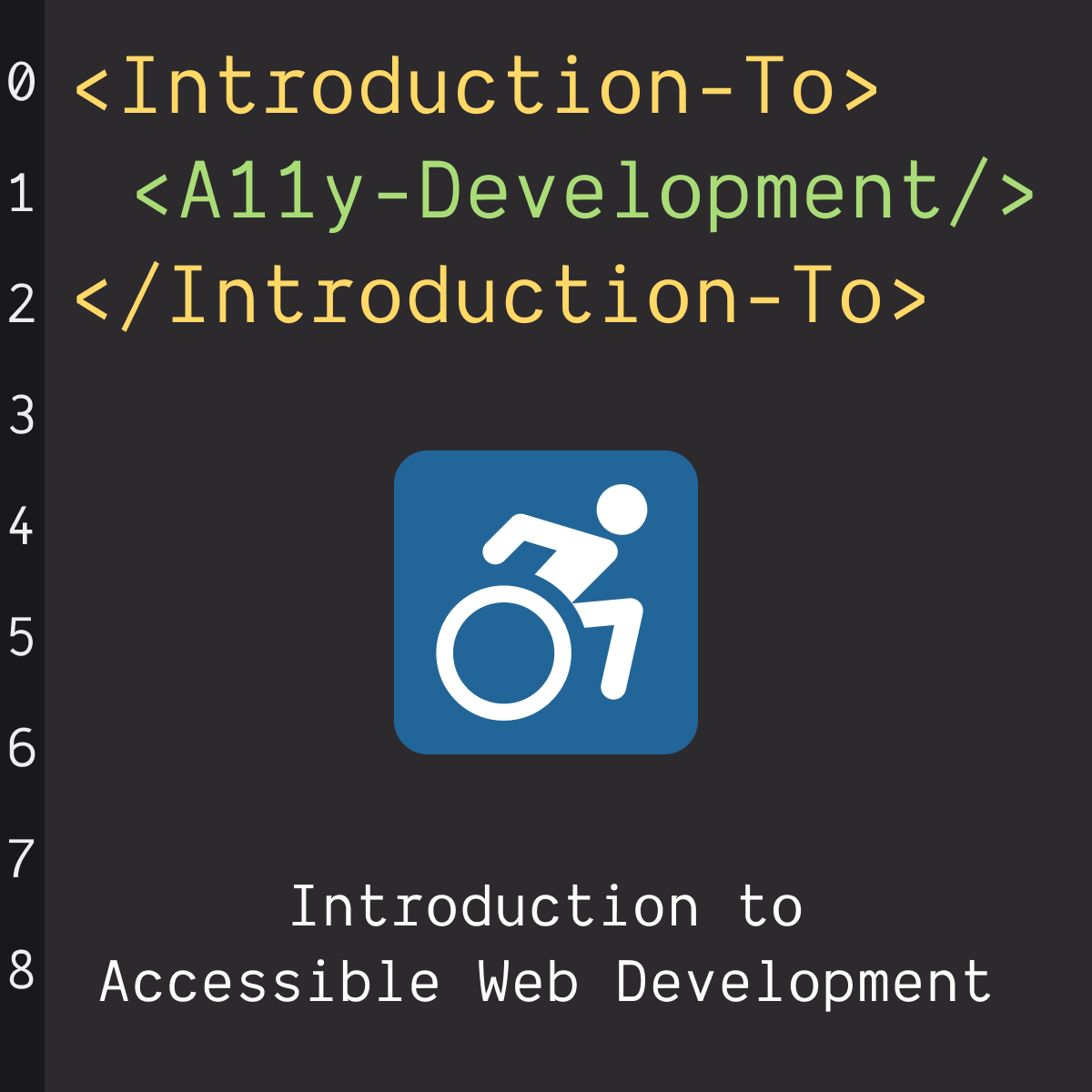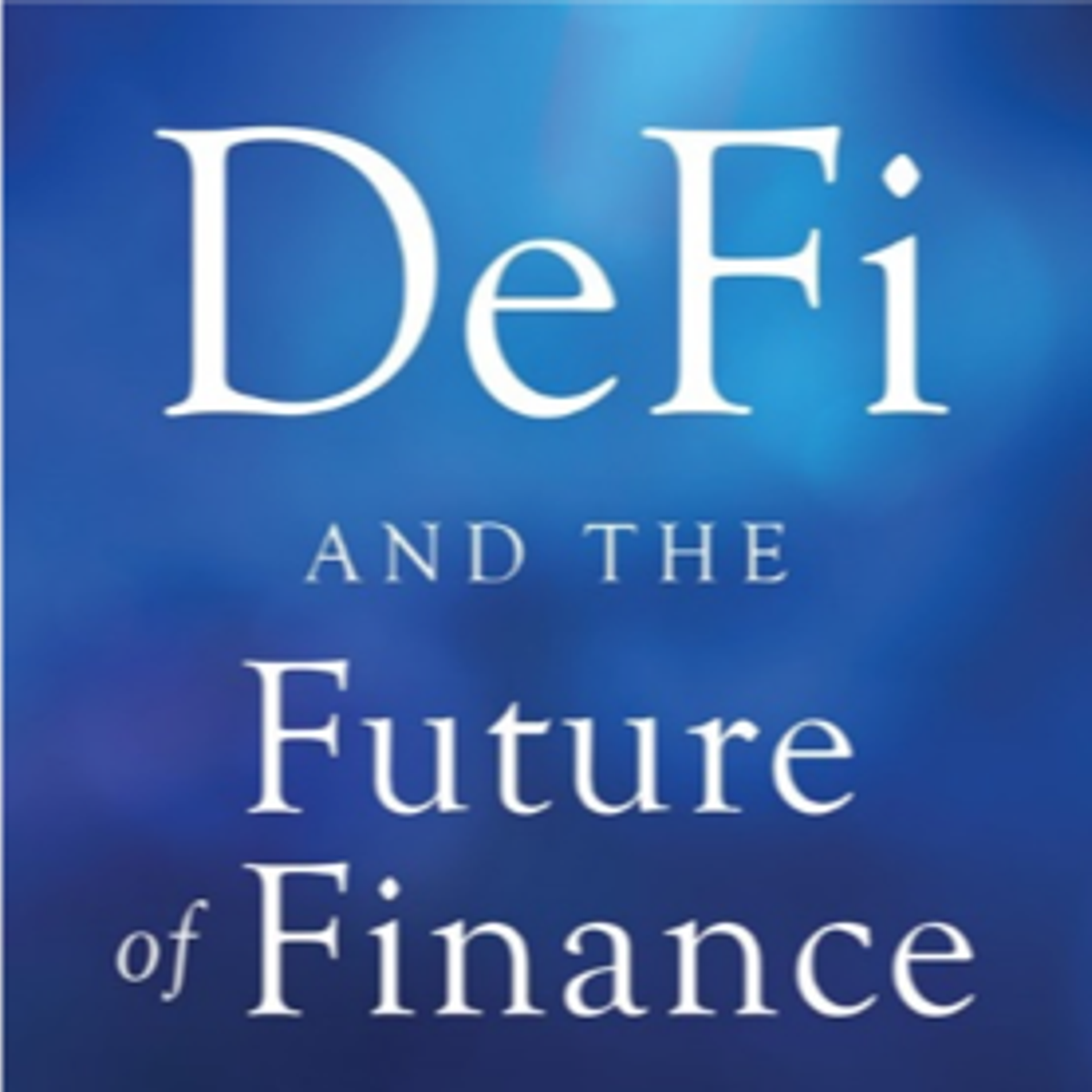Back to Courses









Computer Science Courses - Page 159
Showing results 1581-1590 of 2309

Game Design and Development 1: 2D Shooter
If you love games and want to learn how to make them, then this course will start you down that path. Making games is a creative and technical art form. In this course you will familiarize yourself with the tools and practices of game development and well as the process. You will get started developing video games using industry standard game development tools, including the Unity 2020 game engine. At the end of the course you will have completed two hands-on projects, including an Intro to Unity project and a 2D Shooter game, and will be able to leverage an array of game development techniques to create your own basic games.
Introduction to Accessible Web Development
In this 2-hour project, you will learn the basics of accessible web development while building a newsletter signup page.
Specifically, you will learn how assistive technology interprets our web code, how to apply semantic HTML in order to write more meaningful interfaces, methods for coupling visual styles to the accessibility properties of a component, and creating a custom accessible component from scratch using WAI-ARIA.
Note: This course works best for learners who are based in the North America region. We’re currently working on providing the same experience in other regions.

Decentralized Finance (DeFi) Primitives
DeFi and the Future of Finance is a set of four courses that focus on decentralized finance. The second course is called DeFi Primitives. It is recommended that you take the first course, DeFi Infrastructure, before this course. In this course, we talk about transaction mechanics and introduce both fungible and non-fungible tokens – or NFTs. The course explores the important issue of custody (holding private keys). The course then explores supply adjustment which includes the minting and burning of tokens. The mechanics of bonding curves are introduced. The course then explores the role of direct as well as indirect incentives in the DeFi system. We then analyze swaps or decentralized exchange. We begin by contrasting DEX with centralized exchange (e.g., Coinbase or Binance). The course details the mechanics of Automated Market Makers and provides a number of detailed examples. There is a discussion of impermanent loss as well as (legal) front-running. We end the course by exploring both collateralized and flash loans.

Building R Packages
Writing good code for data science is only part of the job. In order to maximizing the usefulness and reusability of data science software, code must be organized and distributed in a manner that adheres to community-based standards and provides a good user experience. This course covers the primary means by which R software is organized and distributed to others. We cover R package development, writing good documentation and vignettes, writing robust software, cross-platform development, continuous integration tools, and distributing packages via CRAN and GitHub. Learners will produce R packages that satisfy the criteria for submission to CRAN.
Recognizing Shapes in Images with OpenCV
In this 1.5 hour long project-based course, you will apply computer vision techniques to process images, extract useful features and detect shapes using Hough transforms.
By the end of this project, you will have analyzed real-world images using industry standard tools, including Python and OpenCV.
Note: This course works best for learners who are based in the North America region. We’re currently working on providing the same experience in other regions.

Set up AWS Billing Alerts using AWS Budgets
In this 1-hour long project-based course, you will learn how to how to Set up AWS billing alerts using AWS budgets via the AWS console.
AWS Budgets gives you the ability to set custom budgets that alert you when your costs or usage exceed (or are forecasted to exceed) your budgeted amount. You can also use AWS Budgets to set reservation utilization or coverage targets and receive alerts when your metrics drop below the threshold you define. By completing the steps in this guided project, you will successfully learn how to set up AWS billing alerts using AWS budgets via AWS management console within the AWS Free Tier.
Note: This course works best for learners who are based in the North American region. We’re currently working on providing the same experience in other regions.

Dart Functions Framework
This is a self-paced lab that takes place in the Google Cloud console.
Explore using Dart Function Frameworks in a Flutter application. Example based on this demo.

Avatar Psychology for Designers
This course covers the latest and greatest psychological research on avatars and is relevant to current and future designers of any medium that includes user self-representations (e.g., video games, virtual worlds, robots, automobiles, social media, etc.). By taking this course, you will be able to define digital and non-digital avatars and identify how they are applicable in everyday life. You will be able to differentiate between the types of relationships people have with their avatars and motivations for using avatars that are more or less similar to the self. The course will help you discern the importance different avatar attributes (e.g., gender, race/ethnicity, attractiveness, personality, humanity, body type, hair, controllability) and avoid common harmful stereotypes in your designs. Finally, you will gain the ability to design avatars that harness their psychological power to influence users toward specific (hopefully non-evil) outcomes, even beyond avatar use.
Dr. Ratan, the instructor of this one-of-a-kind course, is an internationally recognized scholar who actively publishes research on avatar psychology. He is also known for his jovial and engaging lecture style and believes that you learn and produce more when you are having fun. Hope you enjoy the course.

Deploy an Auto-Scaling HPC Cluster with Slurm
This is a self-paced lab that takes place in the Google Cloud console. In this lab, you will learn how to provision a dynamically scalable HPC cluster using Google Compute Engine, Google Deployment Manager, and the Slurm Workload Manager.

Managing Machine Learning Projects
This second course of the AI Product Management Specialization by Duke University's Pratt School of Engineering focuses on the practical aspects of managing machine learning projects. The course walks through the keys steps of a ML project from how to identify good opportunities for ML through data collection, model building, deployment, and monitoring and maintenance of production systems. Participants will learn about the data science process and how to apply the process to organize ML efforts, as well as the key considerations and decisions in designing ML systems.
At the conclusion of this course, you should be able to:
1) Identify opportunities to apply ML to solve problems for users
2) Apply the data science process to organize ML projects
3) Evaluate the key technology decisions to make in ML system design
4) Lead ML projects from ideation through production using best practices
